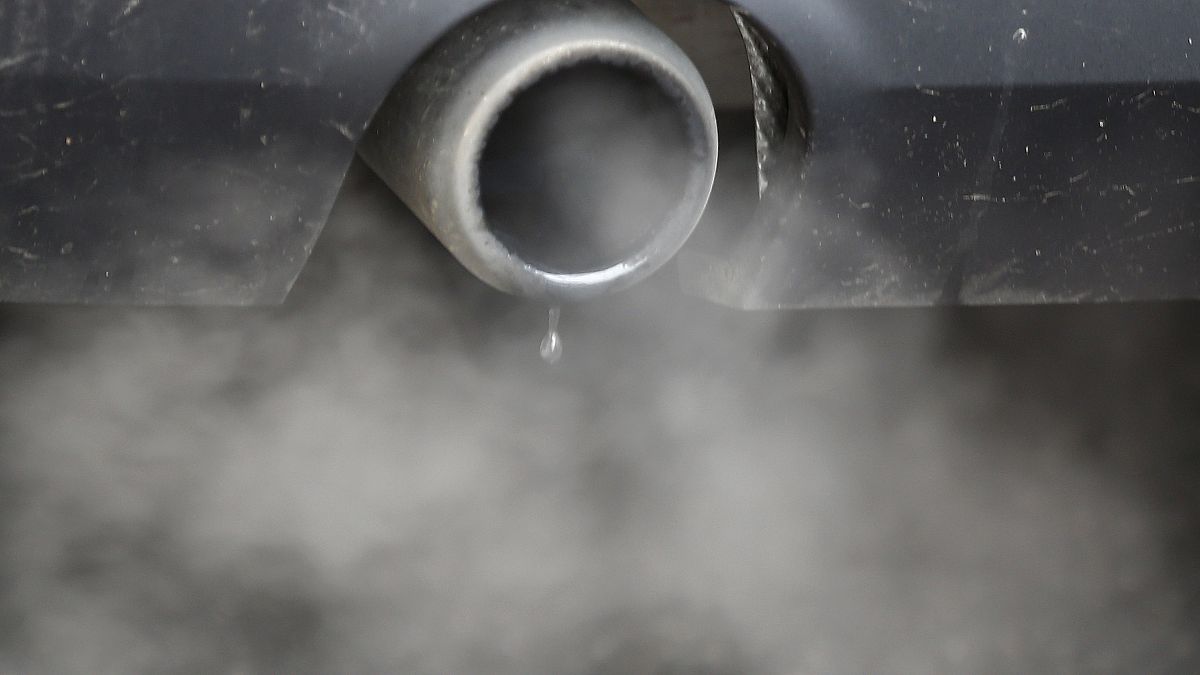EU countries paid out €21 billion in subsidies for diesel - despite exhaust fumes from the fuel being considered a major cancer risk.
Countries in Europe are fuelling the continent’s deadly air pollution problems by continuing to pour billions of euros into subsidising diesel.
Germany, Italy, France and eight other EU states spent 21 billion euros a year on tax breaks for the fossil fuel, according to a new report.
Diesel exhaust fumes were identified as a major cancer risk by the World Health Organisation in 2012.
In the same year it was estimated nitrogen oxide, largely caused by diesel vehicles, led to 75,000 premature deaths in Europe.
But, with diesel vehicles accounting for nearly half of all cars sold in Europe last year, governments continue to subsidise the fuel, mainly in the form of reduced fuel tax.
British Prime Minister Theresa May, announcing plans to tackle the UK’s air pollution problems earlier this year, said she would not punish drivers of older diesel cars.
This was believed to be a nod to the fact that earlier governments had lowered tax on diesel to encourage people to switch in the belief diesel was better for the environment.
“Governments across the EU have been supporting diesel vehicles despite overwhelming evidence of their detrimental impact on people’s health,” a spokesman for Client Earth, an NGO that works to improve the environment, told Euronews. “As a result, seven in ten of the world’s diesel vehicles are sold in Europe and its cities face startling air pollution problems.
“EU governments have a moral and legal duty to reverse this trend. They must put an end to the huge financial incentives that help keep the diesel industry afloat and work to ensure people are breathing clean air as soon as possible.”
The report found Germany (18.1 bn euros), UK (9.4 bn euros), Italy (8.7bn euros) and France (7.1bn euros) were the worst of 11 countries researched in the European Union when it came to subsidies for fossil fuels in the transport sector.
The underwriting of diesel has led to the fuel being uniquely popular in Europe compared to the rest of the world, according to Transport and Environment.
The NGO says in 2014 motorists paid 0.14 euros-a-litre more in petrol taxes than diesel taxes.
“The air pollution crisis in cities across Europe and the recent diesel emissions testing scandal have rightly led to increased pressure for governments to act, yet our analysis shows European countries are providing enormous subsidies to the transport sector,” said Shelagh Whitley, head of climate and energy at the Overseas Development Institute, who co-authored the report with CAN Europe.
“This study shows how governments in Europe and the EU continue to subsidise and finance a reliance on oil, gas and coal, fuelling dangerous climate change and air pollution with taxpayers’ money.”
The findings come despite European governments and the EU pledging to phase out fossil fuel subsidies by 2020 and committing to phase out emissions from fossil fuels by the second half of this century as part of the Paris agreement.
“With the G7, G20 and the EU there is repeated lip service to tackle fossil fuels,” Markus Trilling, CAN Europe’s finance and subsidies policy coordinator. “There is a pledge to tackle fossil fuel subsidies by 2020 and we are far away from it. And the clock is ticking.”
There are however some grounds for optimism for proponents of a switch to more environmentally-friendly fuels.
The Netherlands ended different tax rates for diesel in 2013, while France will seek to reduce the gap between subsidies for petrol and diesel.
Earlier this year France and the UK both announced plans to ban new petrol and diesel cars and vans from 2040.


